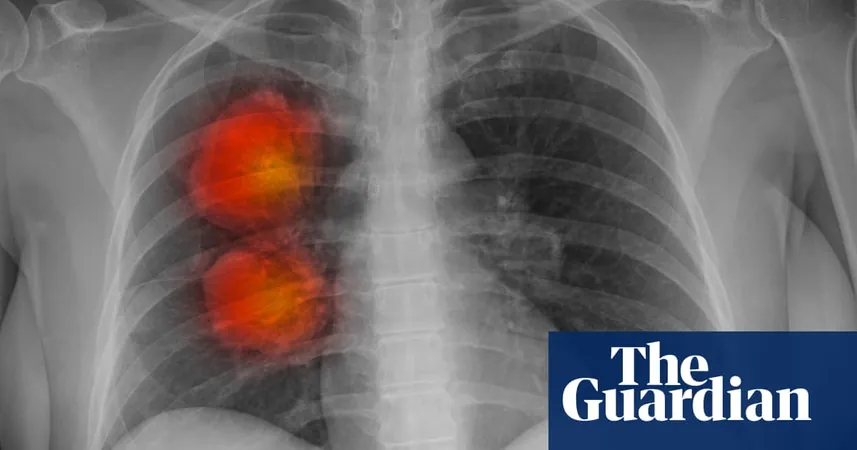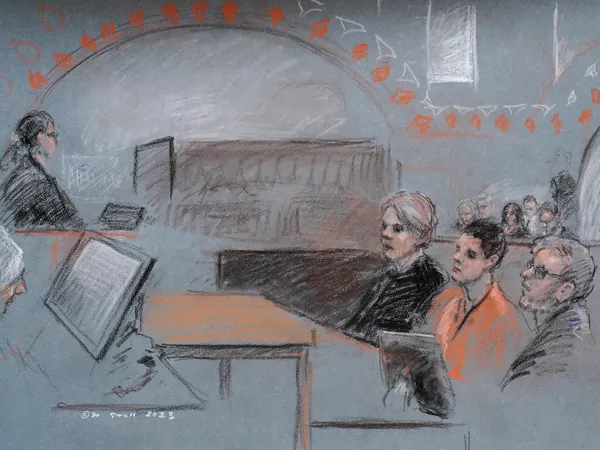
Breakthrough Discovery Offers New Hope for Treating Aggressive Cancers by Targeting Rogue DNA
2024-11-06
Author: Charlotte
Breakthrough Discovery Offers New Hope for Treating Aggressive Cancers by Targeting Rogue DNA
In a groundbreaking study, scientists have discovered a promising new approach to combat some of the most aggressive cancers by focusing on small segments of rogue DNA that enable tumors to flourish and develop resistance to chemotherapy treatments. This pivotal research conducted by a collaboration between US and UK institutions sheds light on the potential to revolutionize cancer treatment.
A thorough examination involving 39 different tumor types from nearly 15,000 patients in the UK revealed that over 16% of these cancerous tumors contained extrachromosomal DNA (ecDNA)—circular loops of genetic material that intensify the tumors' survival and adaptability to conventional therapies. This discovery could signal a turning point for patients who currently face limited treatment options due to the aggressive nature of their cancer.
Paul Mischel, a distinguished professor of pathology at Stanford University, remarked, “This is an important discovery; it affects a significant number of patients worldwide who are suffering because they do not respond to existing therapies and have extremely aggressive tumors.” The findings were published in three detailed papers in the esteemed journal *Nature*, uncovering the critical role of ecDNA in cancer biology.
Traditionally, the majority of human genetic material is organized within 23 pairs of chromosomes within the cell nucleus; however, some fragments can break away, forming ecDNA that operates independently of this organized structure. Previously thought to be a rare anomaly, ecDNA is now recognized as a significant player in the development of challenging cancer cases.
The research found that ecDNA often harbors genes that promote cancer growth and can also inhibit immune system responses. This duality enables tumors not only to flourish but also to evade modern immunotherapies that aim to harness the body’s defenses against them. Furthermore, the chaotic replication of ecDNA can lead to increased genetic variation within tumors, granting them greater resilience against anti-cancer drugs.
Significantly, the study indicates that CHK1 inhibitors—a class of drugs designed to target these rogue DNA elements—may be able to selectively eliminate tumor cells with ecDNA. Early experimental trials on mice showed that a CHK1 inhibitor developed by the biotech company Boundless Bio, co-founded by Mischel, successfully reduced tumor sizes and prevented the emergence of resistance when used alongside standard cancer therapies.
“This is a discovery that not only highlights the challenges of aggressive cancers but also illuminates a pathway towards novel therapeutic strategies,” Mischel emphasized. “The unique vulnerabilities presented by ecDNA offer a promising avenue for developing treatments that truly make a difference in cancer care.”
David Scott from Cancer Research UK further pointed out, “Many of the most aggressive cancers rely heavily on ecDNA for their survival, and as these tumors progress, they often become resistant to current treatments, leaving patients desperate for alternatives. By focusing our efforts on ecDNA, we may be able to sever the support these relentless tumors rely on, transforming grim prognoses into manageable conditions.”
In conclusion, this innovative research underscores the importance of further exploring ecDNA's mechanisms and effects on cancer pathways. As researchers aim to develop targeted therapies that exploit these unique genetic structures, there is hope for improving treatment outcomes for countless individuals battling aggressive cancer forms. The potential for a new era in cancer treatment is on the horizon, and patients may soon find renewed hope in the face of despair.









 Brasil (PT)
Brasil (PT)
 Canada (EN)
Canada (EN)
 Chile (ES)
Chile (ES)
 España (ES)
España (ES)
 France (FR)
France (FR)
 Hong Kong (EN)
Hong Kong (EN)
 Italia (IT)
Italia (IT)
 日本 (JA)
日本 (JA)
 Magyarország (HU)
Magyarország (HU)
 Norge (NO)
Norge (NO)
 Polska (PL)
Polska (PL)
 Schweiz (DE)
Schweiz (DE)
 Singapore (EN)
Singapore (EN)
 Sverige (SV)
Sverige (SV)
 Suomi (FI)
Suomi (FI)
 Türkiye (TR)
Türkiye (TR)